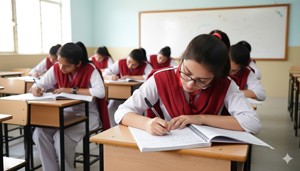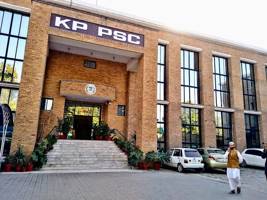Government Declares Official Visit of Matric Topper Students to Turkiye
The Government of Pakistan has declared an official educational trip to Turkiye exclusively for matriculation toppers from all the Boards of Intermediate and Secondary Education (BISE) in the country. The Inter Boards Coordination Commission (IBCC) issued a circular describing the initiative that has been planned by the Ministry of Federal Education and Professional Training in cooperation with the Directorate General of Immigration and Passports. The chosen students will be traveling on official passports and undergo a systemized program that is aimed at promoting the academic exchange and cultural exposure.
Background and Objective Of The Program
The visit is placed as a privilege event to excellent students who have scored highest in their matric exams in their boards. According to the organizers, the trip will be focused on rewarding academic performance and introducing young scholars to educational establishments, heritage sites and bilateral relationship between Tuke and the country. The IBCC will oversee travel and program logistics in collaboration with provincial boards, the Ministry and immigration authorities will deal with the formalities of passport and clearance. The program is also an indication of a larger government effort to provide high-performing students with international learning opportunities as part of larger educational diplomacy initiatives.
Eligibility, Board Responsibilities and Selection
The declared toppers of matric examinations of all BISE are eligible to participate. It is the duty of every board to nominate and prepare the students it has selected and send necessary documentation to the IBCC Secretariat in Islamabad. It is also made clear by the circular that the local arrangements like pick and drop services in the points of departure and arrival will also be done by the boards, and the costs associated with this will be passed on to the boards. The leaders of the BISEs have been given the supervisory positions to ensure that the nominations, documentation and logistic preparation are within the stipulated deadlines and security requirements.

Travel Requirements & Strict Documentation Rules
The advisory sets out specific pre-departure requirements that every student must satisfy. These include:
- Travelling needs and rigid documentation policies.
- The advisory establishes a certain pre-departure condition that all students should meet. These include:
- Doctors report issued by a state hospital to show that one is fit to travel.
- Written permission of a parent of legal guardian to allow the student to participate.
- Provide parent/guardian contact (phone numbers and emergency contact).
- Dress code: ministry also will be able to give you a green blazer every student should carry two white shalwar kameez suits and shoes.
- Baggage restriction: each student is only allowed one shoulder bag.
- Banned materials: there should be no laptops, cameras and other electronic recording materials.
- It is the obligation of boards to make sure that all the necessary documents (including passports) are provided to IBCC by the given deadline.
- Be in possession of original identity documents and any other certificates to support it (where necessary) at the time of departure.
Schedule & Timetable of Procedures
All passports and other supporting documents of the shortlisted students have to reach the IBCC Secretariat in Islamabad by September 19, 2025, to be forwarded to the respective authorities. The presence of such a strict deadline highlights the bureaucratic nature of the process of organizing official passports and travel permits of several students across jurisdictions. Boards which fail to do so by deadline may have their nominees disqualified, as diplomatic and immigration checks cannot be done on a timely basis.

Parental Involvement, Supervision & Safety
In order to ensure the safety of students and integrity of the program, the circular will insist on written parental consent and submission of parent/guardian contact information before departure. The responsibility of BISE chairpersons is to manage the whole process and that involves checking of documentation and orientation of the students and families on how to behave, rules of traveling, or emergency. The joint oversight is supposed to make sure that students will be a good image of Pakistan when paying an official visit and that their well-being will be taken care of continuously by the responsible authorities.
Practical Considerations and Likely Public Response
Parents and educators will probably receive the program as the chance to be recognized and enriched with the best students. Nevertheless, logistical issues, including whether boards will cover travel necessities, how pick and drop services will be organized on a regional basis, and how students in distant districts will be accommodated, are some matters that can be followed up by IBCC guidance. It will be necessary to be transparent in the selection process, inform them on time of the travel timetable and give them a strict list of what is forbidden to make the process easy and prevent misunderstanding.
Looking Ahead
Even as the boards are ready to present passports by the deadline of September 19th, 2025, stakeholders anticipate that the IBCC and ministry will release detailed itineraries, supervision arrangements as well as contingency plans. The project is a targeted program to compensate academic performance and at the same time enhance global educational relationship, its effectiveness will be determined by a careful integration of federal ministries, provincial boards, immigration, and involved families.
Related News
-
 13-Sep-2025
13-Sep-2025China to Train Pakistani Engineers Under CPEC

.gif)











.jpeg)



.png)
